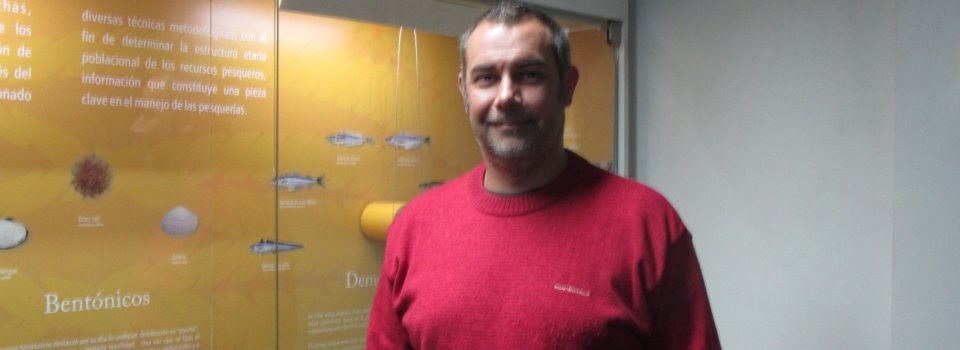IFOP organized a lecture on “Mitigation measures of by-catch at fisheries of Southwestern Atlantic.
August 12th, 2016
In the line of Discard Research Project developed by IFOP, the Argentine researcher of the Scientific Research Commission of Buenos Aires Province (CIC) – presented some advances in the research of by-catch in fisheries in the Southwest Atlantic and mitigation measures being developed.
In Valparaiso, at Marco Espejo Vidal Auditorium (IFOP), in line with the development of Discard Research Program and By-catch capture, the Instituto de Fomento Pesquero (IFOP), jointly with Centro de Ecología Aplicada and Sutainability (CAPES) conducted a lecture entitled “Mitigation of by-catch in South-West Atlantic fisheries” given by Dr. Andrés Milessi.
At that time, among other subjects, the experience of Argentina and Uruguay in investigations related to by-catch were presented, in addition to measures to reduce the catch of unwanted species.
Among many other things, Dr. Milessi presented the concepts associated to By-catch, Bycatch and / or discard, and besides he discussed the biological and socioeconomic impact generated by discard and by-catch. “Discard provokes mortality of juveniles from target species and other species from accompanying fauna, which while not being quantified, it contributes to overexploitation. On the other hand, affects the association between species, destroys habitat and the environment, modifying the structure and function of populations and communities, provoking also monetary losses,” added the researcher.
On the other hand, Dr. Milessi detailed the experience in Argentina with the use of exclusion devices developed by INIDEP (Dejupa and Disela). “These devices, used in fisheries of common hake and Patagonian prawn, allows to select certain sizes of the target species caught and / or avoid catching of non-target species, permitting on the one hand, improve selectivity, and secondly, reduce by-catch. The two devices have shown very good results in the two fisheries, reaching an exclusion of juvenile hake close to 100%, and in the case of manta ray between 80 and 100%. ”
Marcelo San Martin, Discard project leader of IFOP added: “It is interesting to know the experience of neighboring countries have had in the research of by-catch and as they have faced it. In this way, to establish tools or mitigation measures for reducing by-catch has been a primary objective in all the world’s fisheries and our country is no exception. By our side, we have made important advances in ascertain the problem in several fisheries, identifying the causes and evaluating also the various alternatives to mitigate it, however, it is always rewarding to internalize and discuss about the advances made by other countries. Additionally, these experiences encourage the ability to work jointly in solving such critical and common as by-catch problems, as we have done with CAPES “.
